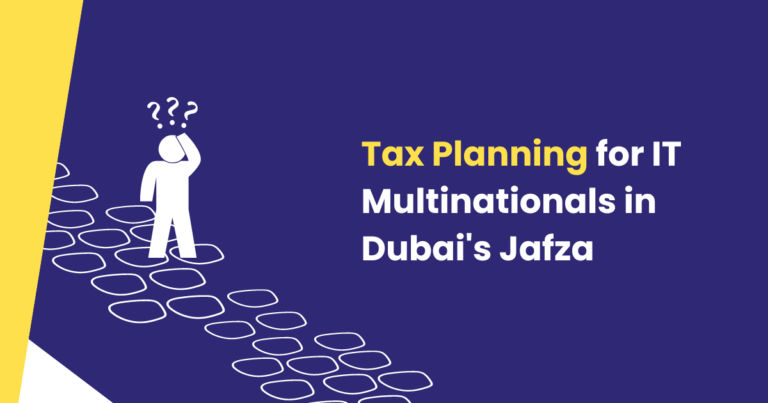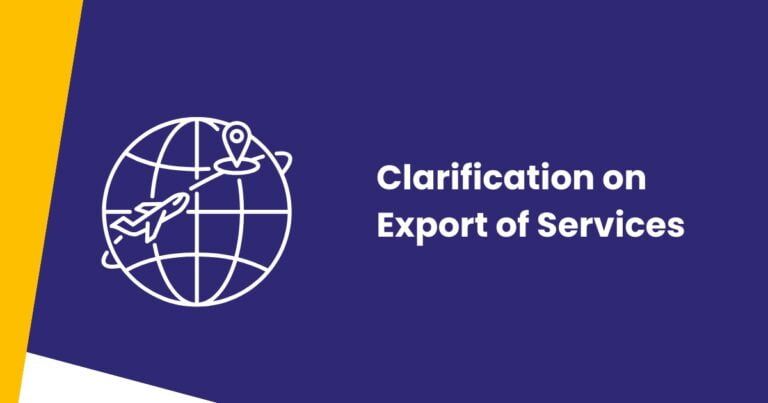Jebel Ali Free Zone (JAFZA) was founded in 1985. It spearheaded Dubai’s transformation into a buzzing global epicenter for trade, transportation, and business. Presently, JAFZA is the active base for more than 8700 firms spanning various sectors. These include logistics, manufacturing, and technology services. Thanks to first-rate facilities and incentives such as zero tax rates and complete foreign ownership, JAFZA remains a magnet for businesses worldwide.
The tax policy is evolving in the UAE and internationally. JAFZA enterprises must understand the implications of existing and upcoming reforms. This is crucial for their success and compliance. This comprehensive guide covers everything companies need to know.
The Evolving Corporate Tax Situation in JAFZA
Standard UAE Corporate Tax Regime
Starting from June 1, 2023, the UAE has declared a uniform corporate tax rate. It’s set at 9% and will apply to all company profits.
JAFZA’s Beneficial Exception
JAFZA firms enjoy a beneficial exception. They continue to be exempt from corporate and personal income taxes for years to come. This is based on current policies. Here is an overview:
- 0% Tax Rate: The JAFZA offers a 0% Tax Rate. This applies to both corporate and personal income taxes. No taxes apply to business profits for up to 50 (renewable) years from initial free zone establishment. This promotes greater reinvestment and development.
- Scope of Exemption: All industries and activities localized within JAFZA are tax-free. Offshore operations are an exception. No change currently foreseen before 2074.
- Future Possibilities: Additional taxes before the expiry period seem unlikely, barring major upheavals. Stay updated regarding any value-added tax (VAT) changes at the federal level that apply to free zones.
Understanding Value Added Tax (VAT) Impacts in JAFZA
Corporate tax poses less immediate concerns for companies in JAFZA. However, VAT introduction by the UAE in 2018 was a landmark shift. Now, it applies economy-wide. Here is an overview of VAT and key aspects firms must follow:
What Transactions Attract VAT
Most countries charge 15-20% standard VAT. Unlike them, the UAE caps its VAT at 5%. This encourages trade. Locally supplied goods and services are exempt from VAT for JAFZA entities. However, the tax still applies for:
- Import or export of goods, including oil/gas or gold
- Services provided internationally by JAFZA firms to overseas clients
- Business-related expenditures excluding manpower salaries and wages
Limited Zero VAT Scenarios
VAT is not applicable by JAFZA companies in case of:
- Export of goods/services rendered for international clients
- Trading specific essential commodities – certain education, healthcare products
- Any supplies made by free zone entities exclusively to mainland Dubai markets
Stringent Documentation Requirements
Firms must maintain accurate digital records of all financial transactions. This includes purchases, expenses, and sales. They must also file official quarterly VAT returns. This is to claim refunds or clear outstanding tax dues. Non-compliance invites financial penalties or business disruption.
Leveraging Tax Exemptions & Other Incentives
JAFZA provides more incentives, for companies within its boundaries. These are in addition to the major corporate tax and VAT exemptions:
Zero Personal Income Tax
In the UAE, both corporate and personal income tax regulations do not currently apply. This has been the case for 50 years, starting in 2004. This allows JAFZA firms to attract top-tier global talent. This talent is critical for sustaining innovation and growth.
10 Year Tax Holiday
Newly registered JAFZA companies also secure a 10-year waiver from 2023 onwards for corporate taxes. This waiver applies if wider regulations evolve in future. This thereby promotes fresh investments and entrepreneurship within priority sectors.
In the long term, the savings possibilities multiply. This happens because of discounts on administrative fees and flex desks.
Utilizing UAE’s Expanding Tax Treaty Network
The UAE has 89+ double tax avoidance agreements (DTAAs). These agreements prevent double taxation. It also uses the agreements to attract foreign direct investments. This is more extensive than its regional peers. It has DTAAs with nations including key trading partners.
Objectives include:
- Eliminate overseas double taxation for UAE investors and companies. This includes JAFZA enterprises when expanding abroad
- Capping foreign withholding taxes applicable on cross-border dividend, interest, royalty and service fee payouts
- Increase inbound investments and knowledge transfers
JAFZA firms can proactively leverage DTAA provisions for:
- Lower Tax Incidence Overseas: Reduce foreign tax exposure for established international operations via treaty benefits
- Streamlined Compliance: Simplify regulatory formalities through cooperation channels between internal revenue authorities
- Speed Up Global Expansion: Launch new revenue streams overseas faster. Eliminating fiscal uncertainty and leakage aid in this.
Regular updates on DTAA enhancements enables harnessing full benefits.
Tax Compliance Essentials for JAFZA Firms
Financial and tax compliancy is crucial for seamless cross-border operations and growth. Core aspects include:
- Transaction Documentation: Rigorously document every VAT applicable transaction digitally from invoices, purchase orders to inventory records. Manual practices heighten scrutiny.
- Tax Accounting: Produce accurate VAT returns currently. Set up frameworks scalable for corporate tax if mandates arise in future.
- Meeting Deadlines: Strictly avoid delays for current and upcoming tax liabilities. Not following scheduled payments and report submissions can lead to monetary penalties or business disruptions. It can freeze banking and trade facilities.
Conclusion
JAFZA is one of the UAE’s first and largest free trade zones. It has played a pivotal role in realizing Dubai’s ambitions as a leading global startup and trade hub. JAFZA has powered enterprise growth for over three decades through unparalleled incentives.
The wider national tax environment is set to expand. As a JAFZA firm, optimize corporate tax and VAT savings. Integrate compliant protocols. This will further sustainable growth. Updated regulations may also open more avenues for development. For example, overseas consolidation could leverage DTAA benefits.
Stay connected with government authorities and experienced advisors. This will maximize financial efficiencies and prevent business disruption through timely compliance. Ultimately, channel resources for driving innovation further.
FAQs
Analyze which nations have double tax avoidance agreements with the UAE. Then, structure global business and ownership to maximize treaty benefits. Minimize foreign taxes.
At present, UAE corporate or personal taxes do not apply to shares held in JAFZA enterprises. This includes shares held by local or foreign shareholders.
Cross-border export and import of goods attract 5% VAT in JAFZA. Overseas services provision also attracts 5% VAT in JAFZA. This is according to federal UAE mandates.





